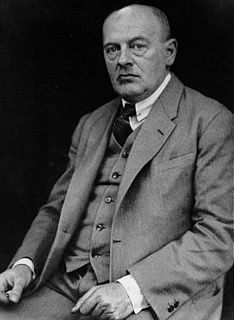A Quote by Bertrand Russell
A life which goes excessively against natural impulse is... likely to involve effects of strain that may be quite as bad as indulgence in forbidden impulses would have been. People who live a life which is unnatural beyond a point are likely to be filled with envy, malice and uncharitableness.
Related Quotes
People hired by government know who is their benefactor. People who lose their jobs or fail to get them because of the government program do not know that that is the source of their problem. The good effects are visible. The bad effects are invisible. The good effects generate votes. The bad effects generate discontent, which is as likely to be directed at private business as at the government.
You must develop a sense of what you can contribute that goes beyond 1 company or organization. A career path today will likely involve moving from organization to organization, creating a picture of rising circles, rather than a vertical ladder. In fact, a vertical rise within one organization will very likely move you away from your strongest areas of competence.
Because you've been exposed to Western tonal music, you know after a certain chord sequence what the next possibilities are. Your brain has compiled a statistical map of which ones are most likely and least likely. If the song keeps hitting the most likely notes, you'll get bored, and if it's always the least likely ones, you'll get irritated.
There are some despotic governments so filled with a feeling of insecurity that they regard the free life of culture as a threat to their existence. ... On the other extreme is the kind of popular government which is so distrustful of all forms of distinction that it sees even in the cultivated individual a menace to its existence. Such states are likely to maintain a pressure which discourages cultural endeavor, although the pressure may be exerted through social channels.
Pain or not, I would most likely walk around in a suicidal reverie the rest of my life, never actually doing anything about it. Was there a psychological term for that? Was there a disease that involved an intense desire to die, but no will to go through with it? Couldn't talk and thoughts of suicide be considered a whole malady of their own, a special subcategory of depression in which the loss of a will to live has not quite been displaced by a determination to die?
Nothing can tell us so much about the general lawlessness of humanity as a perfect acquaintance with our own immoderate behavior. If we would think over our own impulses, we would recognize in our own souls the guiding principle of all vices which we reproach in other people; and if it is not in our very actions, it will be present at least in our impulses. There is no malice that self-love will not offer to our spirits so that we may exploit any occasion, and there are few people virtuous enough not to be tempted.
The truest definition of evil is that which represents it as something contrary to nature; evil is evil because it is unnatural; a vine which should bear olive-berries, an eye to which blue seems yellow, would be diseased; an unnatural mother, an unnatural son, an unnatural act, are the strongest terms of condemnation.
I've never written a fiction before about real people. . . . I read everything that I could find by people who met them and tried to get some impression of them, but as always when you write fiction, even if you have completely fictitious characters, you start by thinking of what is plausible, what would they say, what would they be likely to do, what would they be likely to think. At some point, if it is every going to come to life, the characters seem to take over and start speaking themselves, and it happened with [COPENHAGEN].
Ressentiment is a self-poisoning of the mind which has quite definite causes and consequences. It is a lasting mental attitude, caused by the systematic repression of certain emotions and affects which, as such are normal components of human nature. Their repression leads to the constant tendency to indulge in certain kinds of value delusions and corresponding value judgments. The emotions and affects primarily concerned are revenge, hatred, malice, envy, the impulse to detract, and spite.
Gratitude is a mindful awareness of the benefits of life. It's the greatest of virtues. Studies have linked the emotion with a variety of positive effects. Grateful people tend to be more empathetic and forgiving of others. People who keep a gratitude journal are more likely to have a positive outlook on life. Grateful individuals demonstrate less envy, materialism, and self-centeredness. Gratitude improves self-esteem and enhances relationships, quality of sleep, and longevity.


































